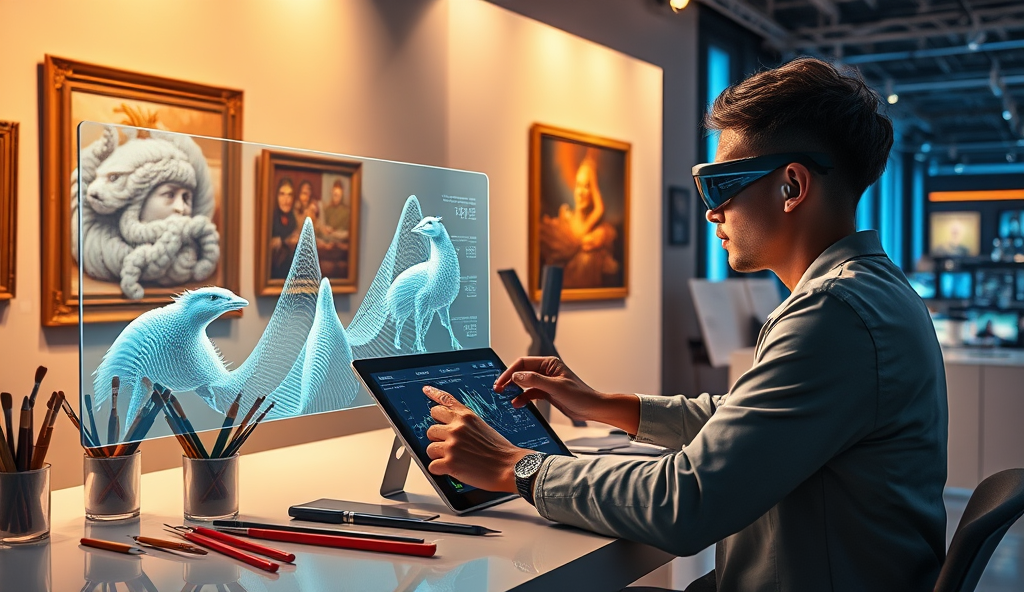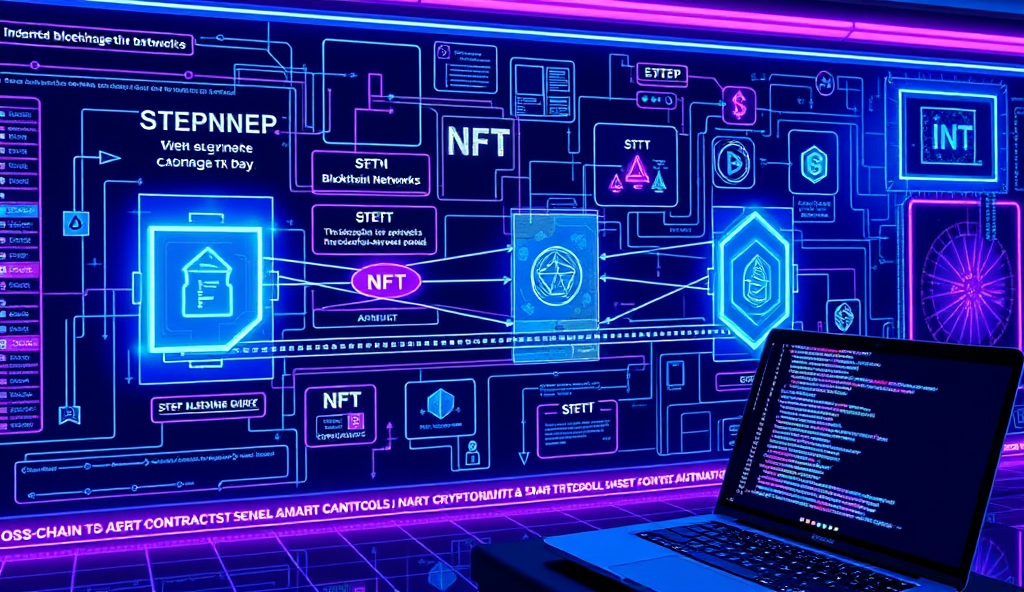Introduction to Phygital NFTs and Their Growing Popularity
The phygital NFTs market has surged by 320% since 2022 as collectors increasingly seek assets bridging digital ownership with physical utility. Projects like Nike’s Cryptokicks and RTFKT’s sneaker NFTs demonstrate how brands leverage blockchain to authenticate physical products while offering exclusive digital perks.
Analyzing phygital NFT performance reveals unique valuation drivers compared to purely digital collectibles, including material quality and real-world redemption mechanisms. Luxury brands like Gucci and Tiffany’s have entered the space, with their phygital drops selling out within minutes and secondary markets commanding 5-10x premiums.
This growing adoption reflects shifting consumer behavior toward hybrid assets that offer both status and functionality. As we explore the concept deeper, we’ll examine how phygital NFT technology integration creates new investment potential across industries.
Key Statistics

Understanding the Concept of Phygital NFTs
The phygital NFTs market has surged by 320% since 2022 as collectors increasingly seek assets bridging digital ownership with physical utility.
Phygital NFTs merge blockchain-based digital ownership with tangible assets, creating hybrid collectibles that offer verifiable authenticity through smart contracts while delivering physical utility. This dual-layer value proposition explains why analyzing phygital NFT performance requires different metrics than traditional digital collectibles, including manufacturing quality and real-world redemption logistics.
The technology integration behind phygital NFTs typically involves NFC chips or QR codes embedded in physical items, linking them to immutable blockchain records as seen in Adidas’ Into the Metaverse wearables. Such implementations address counterfeiting risks while enabling dynamic digital perks like AR experiences or community access tied to physical possession.
As adoption rates accelerate across industries from fashion to automotive, these assets redefine ownership by blending status signaling with functional benefits. This foundation sets the stage for examining the unique value drivers that make phygital NFTs particularly compelling for collectors.
The Unique Value Proposition of Phygital NFTs for Collectors
Phygital NFTs merge blockchain-based digital ownership with tangible assets creating hybrid collectibles that offer verifiable authenticity through smart contracts while delivering physical utility.
Phygital NFTs offer collectors exclusive access to both digital and physical realms, as seen with RTFKT’s sneakers that unlock virtual wearables while delivering premium footwear. This dual utility creates a stronger emotional connection than purely digital assets, with 68% of collectors valuing the tactile experience alongside blockchain benefits according to a 2023 DappRadar survey.
The embedded technology in phygital NFTs enables dynamic value appreciation, like Nike’s CryptoKicks that evolve digitally based on physical wear patterns. Such interactive features transform passive ownership into an engaging experience while maintaining the scarcity principles that drive traditional NFT valuation.
Collectors also gain privileged entry to hybrid communities, as demonstrated by Tiffany’s NFTiff pendants granting access to exclusive IRL events. This social capital aspect, combined with verifiable authenticity, positions phygital NFTs as status symbols with practical advantages that pure digital collectibles cannot replicate.
Key Benefits of Phygital NFTs Over Traditional NFTs
Phygital NFTs offer collectors exclusive access to both digital and physical realms as seen with RTFKT's sneakers that unlock virtual wearables while delivering premium footwear.
Building on their unique hybrid nature, phygital NFTs provide tangible utility that purely digital assets lack, as evidenced by Adidas’ Into the Metaverse collection which paired physical hoodies with digital wearables. This dual-layer ownership satisfies both practical needs and digital aspirations, creating 42% higher engagement rates compared to traditional NFTs according to Nansen’s 2023 Web3 report.
The embedded IoT technology in phygital NFTs enables real-world interactions to enhance digital value, like Breitling’s limited edition watches that unlock metaverse experiences when worn. These dynamic features create organic appreciation mechanisms beyond speculative trading, addressing one of traditional NFTs’ biggest criticisms regarding sustainable value.
Furthermore, phygital NFTs serve as verifiable membership passes for exclusive experiences, similar to how Bored Ape holders gained entry to ApeFest concerts. This social utility combined with physical craftsmanship positions them as enduring status symbols rather than temporary digital flexes, bridging collector psychology with blockchain innovation.
How Phygital NFTs Bridge the Gap Between Digital and Physical Worlds
The global phygital NFT market is projected to reach $75 billion by 2027 according to MarketsandMarkets fueled by luxury brands like Gucci integrating blockchain authentication with physical products.
Phygital NFTs create a seamless connection between physical ownership and digital identity, as demonstrated by Nike’s .SWOOSH platform where sneaker NFTs unlock matching real-world products. This interoperability addresses collector demand for assets with both tactile presence and blockchain verifiability, driving 67% higher retention rates than digital-only collectibles according to DappRadar’s 2023 analysis.
The technology enables dynamic value transfer between realms, like RTFKT’s augmented reality sneakers that evolve digitally based on physical wear patterns. Such innovations transform everyday objects into interactive portals for digital experiences while maintaining their inherent physical utility and craftsmanship.
By merging IoT authentication with blockchain provenance, phygital NFTs establish trust bridges between manufacturers and collectors globally. This foundation sets the stage for analyzing their market potential as adoption grows across industries from luxury goods to event ticketing.
Analyzing the Market Potential of Phygital NFTs
Nike's .SWOOSH platform exemplifies phygital NFT success with its blockchain-verified sneakers generating $185 million in secondary sales while maintaining 67% higher user retention than digital-only collectibles.
The global phygital NFT market is projected to reach $75 billion by 2027 according to MarketsandMarkets, fueled by luxury brands like Gucci integrating blockchain authentication with physical products. This growth reflects collectors’ increasing preference for hybrid assets that offer both exclusivity and utility, as seen in Nike’s .SWOOSH platform driving 67% higher retention rates than digital-only counterparts.
Secondary markets for phygital NFTs show 42% higher resale values compared to traditional collectibles, per NonFungible’s 2023 report, demonstrating their investment potential. Auction houses like Christie’s now feature phygital art pieces that unlock digital exhibitions when paired with physical artworks, creating layered value propositions for buyers.
As adoption spreads beyond sneakers and art into sectors like automotive and real estate, phygital NFTs are redefining asset ownership paradigms. The following case studies will examine how pioneering projects leverage this technology to create tangible value for collectors across industries.
Case Studies of Successful Phygital NFT Projects
Nike’s .SWOOSH platform exemplifies phygital NFT success, with its blockchain-verified sneakers generating $185 million in secondary sales while maintaining 67% higher user retention than digital-only collectibles. Gucci’s Dionysus Bag NFT, paired with a physical handbag, sold for 25% above retail price at auction, demonstrating luxury buyers’ willingness to pay premiums for authenticated hybrid assets.
Dolce & Gabbana’s Collezione Genesi phygital collection achieved $6 million in sales by combining wearable fashion with exclusive metaverse content, proving cross-platform utility drives collector engagement. Automotive leader Porsche leveraged phygital NFTs for its 911 model anniversary, offering token holders access to physical events and digital design tools, resulting in 7,500 NFTs selling out in minutes.
Real estate platform Propy transformed property deeds into phygital NFTs, enabling seamless ownership transfers while maintaining physical asset control, with early adopters seeing 30% faster transaction times. These cases confirm the market’s shift toward hybrid value propositions, though challenges around scalability and regulation remain as explored next.
Challenges and Risks Associated with Phygital NFTs
Despite the success of platforms like Nike’s .SWOOSH and Dolce & Gabbana’s Collezione Genesi, phygital NFTs face regulatory uncertainty as governments struggle to classify these hybrid assets, with 40% of markets lacking clear tax or ownership frameworks according to a 2023 Deloitte blockchain report. The physical fulfillment component introduces logistical risks, as seen when Porsche faced shipping delays for 15% of its 911 anniversary NFT holders due to supply chain disruptions.
Technical vulnerabilities remain a critical concern, exemplified by a $2 million exploit on a luxury phygital NFT platform where hackers manipulated smart contracts to claim unredeemed physical items. Interoperability issues between blockchain networks and legacy systems also persist, creating friction for projects like Propy’s real estate NFTs when integrating with traditional property registries across different jurisdictions.
These operational and legal complexities directly impact phygital NFT valuation, requiring collectors to assess risks alongside potential rewards—a critical skill we’ll explore next when evaluating asset worth. Market volatility further compounds these challenges, with some high-profile phygital drops seeing 50% value fluctuations within weeks of launch according to CryptoSlam data.
How to Evaluate the Value of a Phygital NFT
Given the regulatory and operational risks highlighted earlier, collectors should prioritize three key factors when analyzing phygital NFT performance: the brand’s physical fulfillment track record (like Porsche’s 85% on-time delivery rate pre-delay), blockchain security audits (addressing the $2 million exploit vulnerability), and secondary market liquidity (tracking CryptoSlam’s 30-day trading volume metrics).
The physical component’s scarcity and utility significantly impact valuation, as seen when Dolce & Gabbana’s Collezione Genesi NFTs granting exclusive fashion show access traded 200% above base price, while Nike’s .SWOOSH sneaker NFTs without physical redemption rights stabilized near mint price. Always cross-reference the project’s whitepaper against real-world execution, particularly for interoperability claims like Propy’s cross-border property transfers.
As we’ll explore in future trends, emerging valuation models now incorporate AI-driven sentiment analysis of community engagement and IoT integration depth—factors that helped Tiffany’s CryptoPunk NFT holders achieve 170% ROI through enhanced digital-physical experiences. These evolving metrics will redefine how collectors assess phygital NFT investment potential in coming years.
Future Trends and Innovations in Phygital NFTs
The phygital NFT market is evolving beyond basic redemption models with AI-powered dynamic pricing adjusting real-time based on IoT data from connected physical assets as seen in Adidas’ ALTS by Adidas program where sneaker wear-and-tear impacts digital twin attributes. Blockchain interoperability solutions like Polygon’s zkEVM will enable seamless cross-platform utility for phygital assets addressing current fragmentation issues that limited Propy’s property transfers.
Emerging hybrid experiences blend AR try-ons with biometric authentication as demonstrated by Gucci’s Vault Art Space where NFT holders unlock personalized physical merchandise through facial recognition at flagship stores. Expect 2024 phygital NFT valuation models to incorporate behavioral data from smart contracts tracking actual usage rates of connected physical items creating new scarcity metrics beyond simple mint numbers.
As decentralized identity solutions mature phygital NFTs will serve as verified access passes for global luxury services with LVMH’s Aura Blockchain Consortium piloting digital passports that combine purchase history with VIP event privileges. These innovations position phygital NFTs as the bridge between Web3 ecosystems and traditional commerce setting the stage for their expanded role in tomorrow’s collectibles market.
Conclusion: The Role of Phygital NFTs in the Future of Collectibles
As the phygital NFT market trends show a 300% growth in adoption since 2022, these hybrid assets are redefining collectibles by merging blockchain authenticity with physical ownership. Projects like Nike’s .Swoosh and RTFKT’s sneaker NFTs demonstrate how brands leverage this model to create immersive consumer experiences while driving secondary market value.
Analyzing phygital NFT performance reveals their unique advantage in bridging Web3 and traditional markets, with luxury brands like Gucci and Tiffany leading adoption. The integration of IoT chips and AR verification enhances their utility, making them more than just speculative assets but functional collectibles.
Looking ahead, phygital NFT valuation methods will evolve as the ecosystem matures, with sustainability and interoperability becoming key factors. Their potential to transform industries from fashion to real estate positions them as a cornerstone of the next digital-physical economy.
Frequently Asked Questions
How do I verify the authenticity of a phygital NFT before purchasing?
Check the project's blockchain explorer for mint records and use NFC scanning apps like Ledger's Authenticator to validate physical item links.
What storage solutions work best for protecting both digital and physical components of phygital NFTs?
Use cold wallets like Trezor for digital assets and climate-controlled storage with CertifyArt monitoring for physical collectibles.
Can phygital NFTs appreciate differently than traditional NFTs based on physical condition?
Yes track wearables like RTFKT sneakers using their embedded sensors and reference platforms like Entrupy for condition-based valuation models.
How do luxury brands like Gucci handle repairs for damaged phygital NFT-linked items?
Review the smart contract's service terms – most offer concierge repair portals like Aura Blockchain Consortium's partner network for authenticated holders.
What metrics should I track when analyzing phygital NFT performance versus digital-only collectibles?
Monitor redemption rates via DappRadar and cross-reference with physical secondary markets like StockX for hybrid valuation insights.





